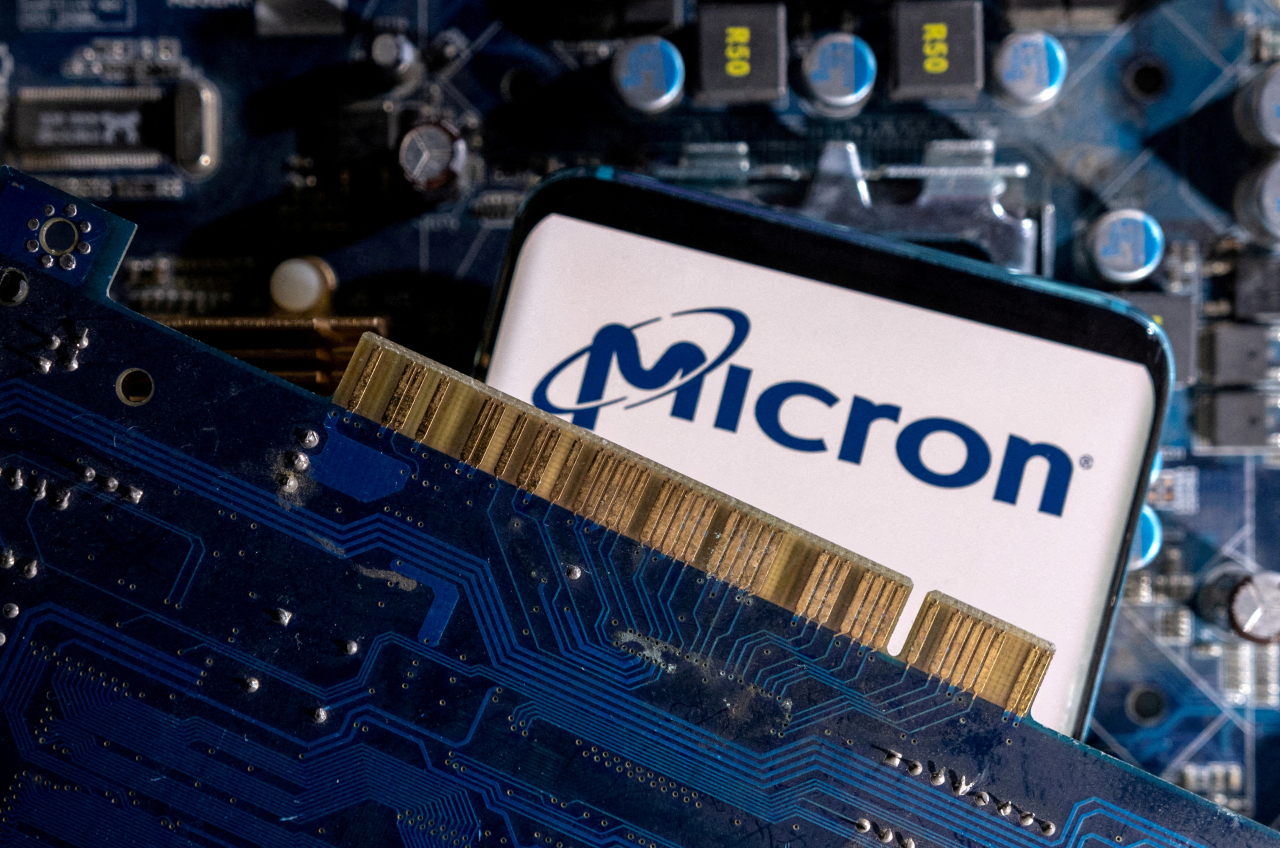Pressure mounts on Korean chipmakers as China restricts Micron chip sales
China imposes first ban against US memory chip maker, citing security risks
By Jo He-rimPublished : May 22, 2023 - 15:47

China is banning its key infrastructure firms from buying products made by US memory chipmaker Micron Technology for failing its security probe.
The first such critical ban from the Chinese government comes amid its intensifying rivalry with Washington, and has prompted concerns for Korean chipmakers operating their key manufacturing facilities there.
The Cyberspace Administration of China said Sunday the US chip manufacturer has failed its network security probe, that company's products pose "security risks" to China.
"The review found that Micron's products have serious network security risks, which pose significant security risks to China's critical information infrastructure supply chain, affecting China's national security," the CAC said in a statement.
While the CAC did not provide details on the risks and the products posing such threats, it said the operators of "critical information infrastructure" will be required to stop procuring from Micron.
By the broad definition of critical information infrastructure in China, the sectors could range from telecommunications to finance.
Beijing's latest restriction against the US firm appears to add to its deepening dispute with Washington.
On Saturday, China also lashed out against the Group of Seven summit. Summit participants announced on the same day a joint pledge to "counter malign practices" and "coercion" by Beijing. The G-7 members are the US, Canada, France, Germany, Italy, Japan and the United Kingdom.
China urged the G-7 members "not to become an accomplice" in "American economic coercion."
"The massive unilateral sanctions and acts of ‘decoupling’ and disrupting industrial and supply chains make the US the real coercer that politicizes and weaponizes economic and trade relations," Beijing's Foreign Ministry said in a statement.
"The international community does not and will not accept the G-7-dominated Western rules that seek to divide the world based on ideologies and values."
While China's restriction is not directed at Korean chipmakers, it would likely place them in a difficult situation for maintaining both China and the US as major clients, industry observers here say.
Though exact figures are not public, the two countries account for similar portions of the the world's No. 1 DRAM chip maker Samsung Electronics' total chip sales. SK hynix also has the two countries as its top two clients, with the US accounting for 50 percent of its total sales and China about 30 percent.
"For South Korean companies leading the chip market and supplying a major volume of memory chip demand in China, Beijing is highly unlikely to impose such restrictive measures," Kim Yang-paeng, a senior researcher at Korea Institute for Industrial Economics and Trade said.
"If China imposes bans against Korean companies, they would suffer from lack of supply of memory semiconductors," Kim said.
Experts predict Beijing's move may limit its domestic chip supply and squeeze its consumer appliances market. At the same time, it could also provide as an opportunity for Chinese chipmakers such as YMTC to expand their market share, an industry official said under condition of anonymity.
For Korean companies, Micron's suspension would not likely increase its chip sales in China due to pressure from the US.
After China launched a national security probe into Micron in April, Washington reportedly requested the Korean government to hold back from filling China's chip shortfalls in case the US chipmaker is banned from selling chips.
According to a report by the Financial Times citing several unnamed sources, both the US and Korean government refused to comment.
Samsung Electronics, the world's No. 1 DRAM chipmaker, produces about 40 percent of its total NAND flash chips in Xian, China. SK hynix, which stands as the world's No. 2 in the DRAM market, also has its key manufacturing facilities in Wuxi. It produces 40 percent of its DRAM chips in Wuxi, and generates 20 percent of its NAND flash in Dalian.




![[Herald Interview] 'Amid aging population, Korea to invite more young professionals from overseas'](http://res.heraldm.com/phpwas/restmb_idxmake.php?idx=644&simg=/content/image/2024/04/24/20240424050844_0.jpg&u=20240424200058)













![[KH Explains] Korean shipbuilding stocks rally: Real growth or bubble?](http://res.heraldm.com/phpwas/restmb_idxmake.php?idx=652&simg=/content/image/2024/04/25/20240425050656_0.jpg&u=)

